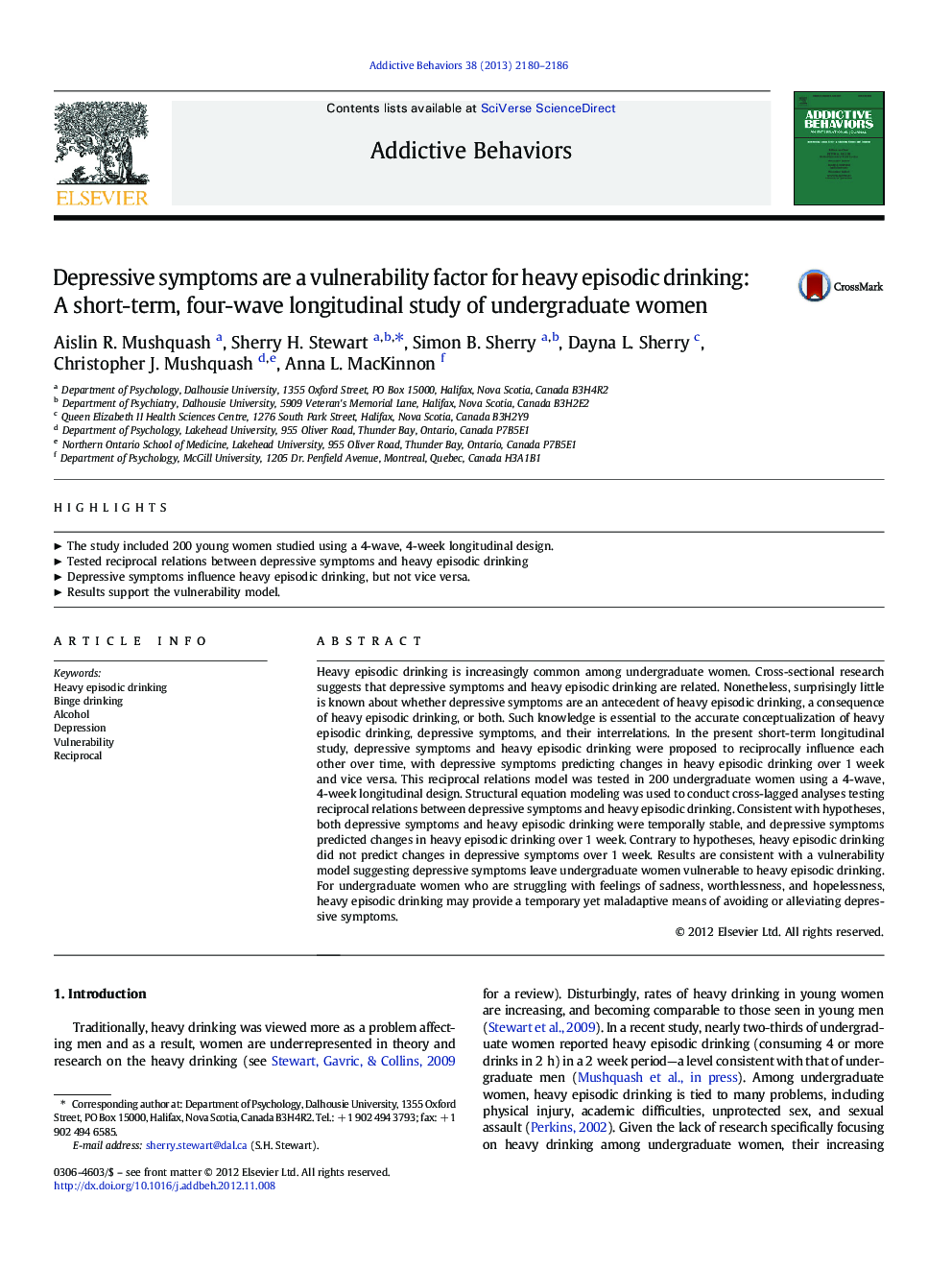| کد مقاله | کد نشریه | سال انتشار | مقاله انگلیسی | نسخه تمام متن |
|---|---|---|---|---|
| 899102 | 915361 | 2013 | 7 صفحه PDF | دانلود رایگان |

Heavy episodic drinking is increasingly common among undergraduate women. Cross-sectional research suggests that depressive symptoms and heavy episodic drinking are related. Nonetheless, surprisingly little is known about whether depressive symptoms are an antecedent of heavy episodic drinking, a consequence of heavy episodic drinking, or both. Such knowledge is essential to the accurate conceptualization of heavy episodic drinking, depressive symptoms, and their interrelations. In the present short-term longitudinal study, depressive symptoms and heavy episodic drinking were proposed to reciprocally influence each other over time, with depressive symptoms predicting changes in heavy episodic drinking over 1 week and vice versa. This reciprocal relations model was tested in 200 undergraduate women using a 4-wave, 4-week longitudinal design. Structural equation modeling was used to conduct cross-lagged analyses testing reciprocal relations between depressive symptoms and heavy episodic drinking. Consistent with hypotheses, both depressive symptoms and heavy episodic drinking were temporally stable, and depressive symptoms predicted changes in heavy episodic drinking over 1 week. Contrary to hypotheses, heavy episodic drinking did not predict changes in depressive symptoms over 1 week. Results are consistent with a vulnerability model suggesting depressive symptoms leave undergraduate women vulnerable to heavy episodic drinking. For undergraduate women who are struggling with feelings of sadness, worthlessness, and hopelessness, heavy episodic drinking may provide a temporary yet maladaptive means of avoiding or alleviating depressive symptoms.
► The study included 200 young women studied using a 4-wave, 4-week longitudinal design.
► Tested reciprocal relations between depressive symptoms and heavy episodic drinking
► Depressive symptoms influence heavy episodic drinking, but not vice versa.
► Results support the vulnerability model.
Journal: Addictive Behaviors - Volume 38, Issue 5, May 2013, Pages 2180–2186